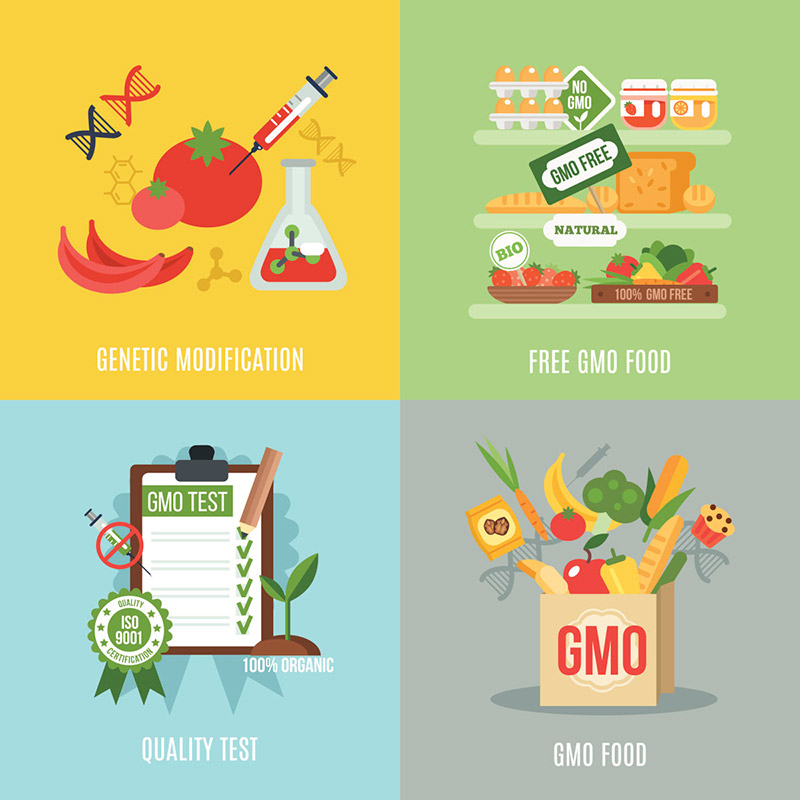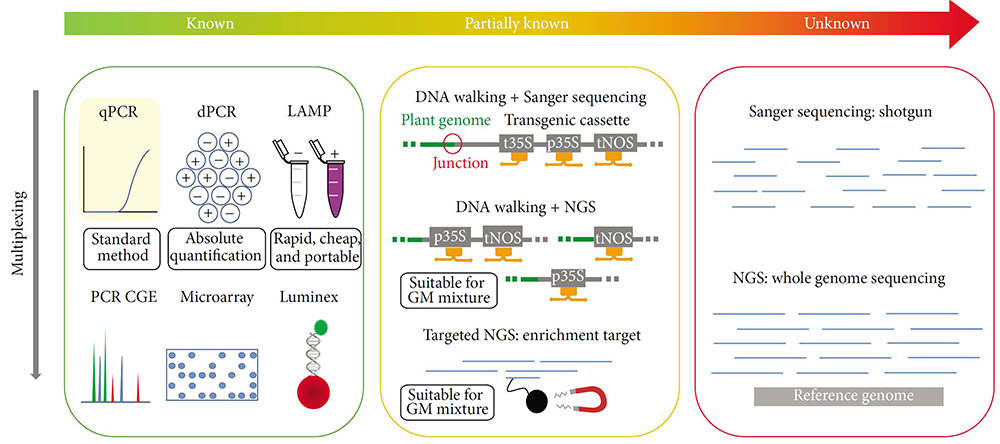Genetically Modified Organisms (GMOs) refer to the crops whose genetic material has been modified using genetic engineering techniques. GMOs commonly have many advantageous traits such as higher yield, stronger tolerance to drought and pests, as well as higher vitamin and mineral contents. Some GMO crops are also free of allergenic properties, making them safer for consumption. However, the unknown risks for transgenic foods are a major concern for consumers. Therefore, GMOs testing is necessary for all producers, and there are strict regulatory requirements for the production, import, and export of GMO foods (Figure 1).
 Figure 1. GMOs testing for food labeling and regulatory requirements.
Figure 1. GMOs testing for food labeling and regulatory requirements.
Lifeasible is a global market leader in GMOs food testing. Our state-of-the-art laboratories are accredited according to ISO/IEC 17025 and ISO 9001. Our experienced technical staffs offer a complete GMOs testing portfolio which encompasses both element and event-specific assays.
At lifeasible, we provide multiple robust, reliable and efficient approaches for GMOs detection (Figure 2), including:
Except for the commonly used methods aforementioned, we have also developed a list of innovative methods for GMOs testing. These methods allow faster detections of single GM target (e.g., loop-mediated isothermal amplification (LAMP)), simultaneous detections of multiple GM targets (e.g., PCR capillary gel electrophoresis (CEG), microarray, and Luminex), more accurate quantification of GM targets (e.g., digital PCR (dPCR)), or characterization of partially known (e.g., DNA walking and Next Generation Sequencing (NGS)) or unknown (e.g., NGS) GMOs.
 Figure 2. The techniques used for GMOs testing (Fraiture et al., 2015).
Figure 2. The techniques used for GMOs testing (Fraiture et al., 2015).
With years of experience in plant breeding and genetics, the experts at lifeasible will provide you with tailored solutions for your requests, and ensure the GMO products on the market meet strict regulatory and consumer demands. Welcome to contact us for questions, inquiries or technical consultations.
Reference
Lifeasible has established a one-stop service platform for plants. In addition to obtaining customized solutions for plant genetic engineering, customers can also conduct follow-up analysis and research on plants through our analysis platform. The analytical services we provide include but are not limited to the following:
July 13, 2024